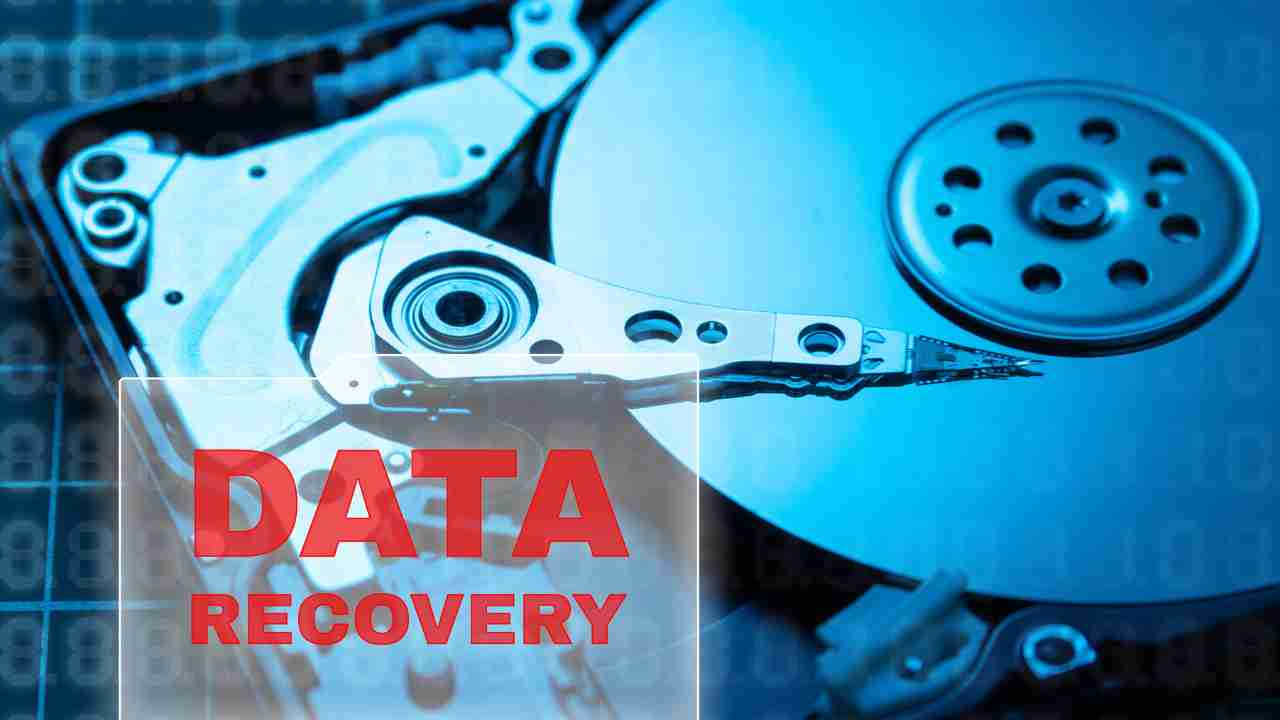The sinking feeling of realizing your precious photos, important documents, or irreplaceable work files have vanished from your hard drive is enough to send shivers down anyone’s spine. Whether it’s a rogue click, a software malfunction, or the inevitable march of time, data loss happens. But before you resign yourself to losing it all, take a deep breath. Data recovery from your HDD is often possible, even in the face of seemingly catastrophic situations.
Understanding the Battlefield: How Data Lives and Dies on Your HDD
Your hard disk drive (HDD) stores data magnetically on spinning platters coated with microscopic grains. When you delete a file, the pointers referencing its location are erased, but the data itself often remains dormant and recoverable. Think of it like hiding notes under a rug; the notes are still there, just out of sight. However, there are several ways this data can become truly lost:
- Overwriting: When you save new data to the same area where deleted files reside, it can permanently overwrite them, making them irretrievable.
- Physical damage: Head crashes, electrical surges, or other physical traumas can damage the platters or read/write heads, rendering data inaccessible.
- Formatting: Formatting wipes the entire drive, erasing all data pointers and significantly lowering recovery chances.
First Aid for Your HDD: Don’t Make the Situation Worse
The moment you realize data is missing, stop using the affected drive immediately. Any new activity increases the risk of overwriting and permanent data loss. Here are some crucial steps to take:
- Shut down your computer: This minimizes the activity on the drive and prevents further overwriting.
- Disconnect the drive: If it’s an external HDD, physically disconnect it from your computer.
- Avoid DIY data recovery: Unless you’re a tech wizard, attempting DIY recovery software without proper knowledge can worsen the situation.
Calling in the Cavalry: Data Recovery Solutions
There are two main options for recovering data from your HDD:
1. Data Recovery Software:
- Suitable for logical data loss like accidental deletions, formatting, or corrupted partitions.
- User-friendly and relatively affordable.
- Popular options include Recuva, EaseUS Data Recovery Wizard, and Disk Drill.
- Be cautious of free software with limited recovery capabilities.
2. Professional Data Recovery Services:
- Ideal for physical damage, severe data loss, or complex recovery scenarios.
- Utilize specialized equipment and advanced techniques.
- Offer higher success rates but come at a premium cost.
- Choose reputable providers with proven track records and positive reviews.
Choosing the Right Path: Weighing Your Options
The best approach depends on the severity of data loss, your technical expertise, and budget. Here’s a quick guide:
- Minor data loss, no physical damage: Try user-friendly data recovery software first.
- Major data loss, physical damage: Consult professional data recovery services.
- Limited budget: Explore free data recovery software options, but understand their limitations.
Like this Canadian Service: A Beacon of Hope
Canada boasts several top-notch data recovery service providers offering cutting-edge technology and ethical practices. One such example is [Insert Canadian data recovery service name], renowned for their expertise in recovering data from even the most challenging situations. They offer free consultations, transparent pricing, and secure data handling, putting your mind at ease throughout the process.
Remember: Data recovery is not always a guaranteed success. However, by acting quickly, understanding the process, and choosing the right approach, you significantly increase your chances of retrieving your precious data. So, take a deep breath, assess the situation, and explore your options. There’s still hope to bring your digital memories and valuable files back from the brink.
Additional Tips:
- Research data recovery service providers thoroughly before selecting one.
- Back up your data regularly to prevent future data loss.
- Consider cloud storage for important files as an additional safety net.
- Don’t despair! With the right help, you can get your data back and breathe a sigh of relief.
Feel free to customize this article by replacing “[Insert Canadian data recovery service name]” with the actual name of a service you recommend or prefer.
I hope this helps! Let me know if you have any other questions.


